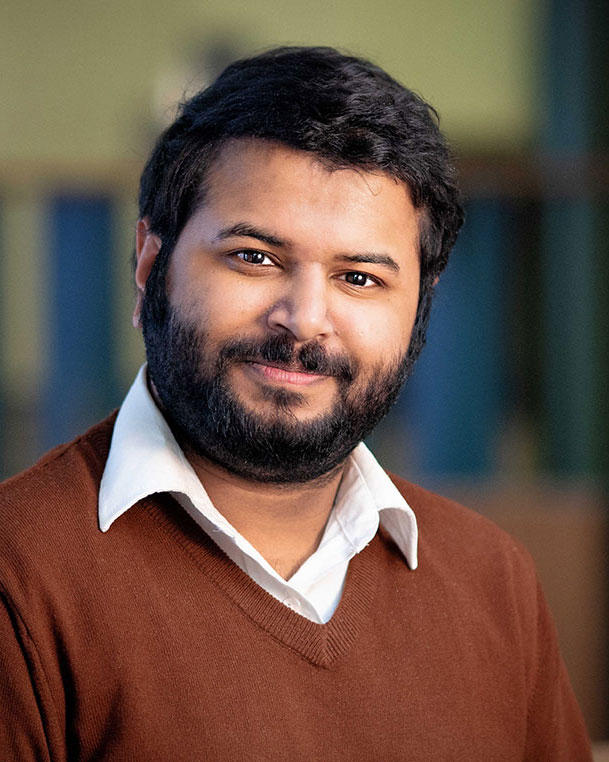Diptavo Dutta Appointed Earl Stadtman Tenure-track Investigator
, by Jennifer K. Loukissas, M.P.P.
Diptavo Dutta, Ph.D., joined DCEG as an Earl Stadtman tenure-track investigator in the Integrative Tumor Epidemiology Branch (ITEB) and an affiliate member in the Biostatistics Branch. Dr. Dutta utilizes genetic, transcriptomic, proteomic, and other ‘omics’ data to uncover the genetic architecture of complex diseases and traits. As an investigator in ITEB, he will apply this expertise to the study of cancer etiology.
Genome-wide association studies (GWAS) have generated a wealth of information about common inherited variants associated with heritable traits and risk of cancer and other diseases. A deeper understanding of the mechanisms underlying those associations has been limited by the methods available to explore multi-layered up-and-downstream interactions and the effect of inherited factors on complex biological functions. Dr. Dutta and colleagues developed a novel statistical approach to interrogate these questions and discover which genes trans-regulate GWAS-identified variants.
This approach has the potential to identify the biological mechanisms behind GWAS findings and prioritize genes which can potentially be “core” to disease manifestation. Dr. Dutta will continue to develop approaches to integrate data across multiple molecular outcomes to provide insights into genetics of cancer, and—importantly—different cancer subtypes.
Dr. Dutta has a particular interest in how genetic ancestry and other inherited factors result in differences in cancer etiology. Historically, genetic studies of human disease have failed to include ethnically diverse populations, resulting in an incomplete understanding of the genetic architecture of disease. Recently, in an extensive analysis of genetic regulation of plasma proteome, he and colleagues catalogued similarities and differences across ancestries which might have important downstream consequences, like risk stratification and drug targeting. In ITEB, Dr. Dutta will develop methods to analyze large-scale multi-ancestry GWAS data as well as emerging ‘omics’ data to gain a more complete understanding of the genetic etiology of cancers which may ultimately inform prevention and treatment strategies. In particular, Dr. Dutta will be working on expanded GWAS of renal cell carcinoma (RCC) to identify candidate causal variants for RCC and their molecular targets. Dr. Dutta along with his colleagues, was awarded the Pamela Anne Cafritz Renal Cell Carcinoma award for 2022. Further, Dr. Dutta aims to leverage the NCI Confluence Project to conduct multi-ancestry genetic association studies of breast cancer.
Prior to joining DCEG, Dr. Dutta completed postdoctoral training at Johns Hopkins University in Baltimore, Maryland. He completed his Ph.D. in biostatistics from the University of Michigan at Ann Arbor, and his Master's of Statistics (M.Stat.) at the Indian Statistical Institute, Kolkata. His doctoral research focused on methods development for evaluating the contributions of rare variants on multiple traits to identify the active genes within a gene-set.
